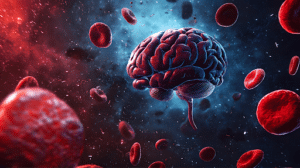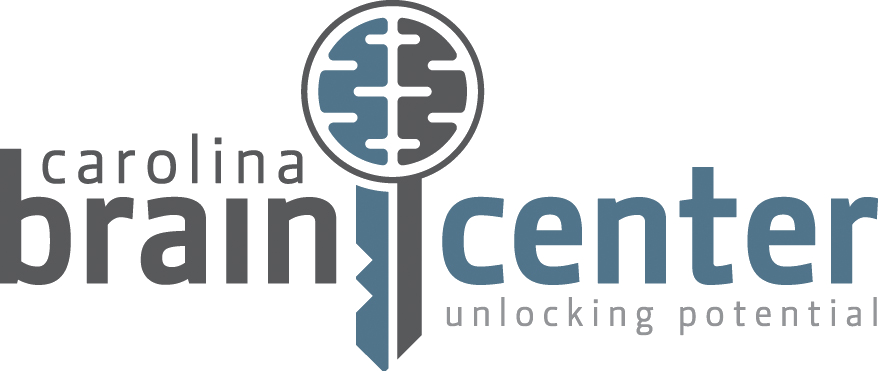 The brain is a highly sensitive organ that requires a protective barrier to shield it from harmful substances in the bloodstream. This barrier, known as the blood-brain barrier (BBB), is essential for maintaining the brain’s stable environment and preventing the entry of pathogens, toxins, and other damaging agents. However, when a concussion occurs, the integrity of the BBB can be compromised. This disruption can lead to a multitude of problems that affect both the immediate and long-term recovery process, potentially contributing to conditions such as Post-Concussion Syndrome (PCS).
The brain is a highly sensitive organ that requires a protective barrier to shield it from harmful substances in the bloodstream. This barrier, known as the blood-brain barrier (BBB), is essential for maintaining the brain’s stable environment and preventing the entry of pathogens, toxins, and other damaging agents. However, when a concussion occurs, the integrity of the BBB can be compromised. This disruption can lead to a multitude of problems that affect both the immediate and long-term recovery process, potentially contributing to conditions such as Post-Concussion Syndrome (PCS).
Understanding the Blood-Brain Barrier
The blood-brain barrier is a highly selective, semi-permeable membrane composed of tightly packed endothelial cells lining the blood vessels in the brain. Its primary function is to regulate the movement of molecules between the bloodstream and the brain, allowing essential nutrients like glucose and oxygen to pass through while blocking harmful substances, such as toxins and inflammatory agents.
The BBB’s selective permeability is crucial for maintaining the brain’s delicate balance and protecting it from fluctuations in blood composition that could interfere with neuronal function. It also plays an essential role in preventing immune cells and other potentially harmful agents from entering the brain’s extracellular space, which is particularly important in preventing inflammation and damage to neural tissue.
However, when the brain experiences a traumatic event like a concussion, the force of the impact can cause the BBB to become “leaky,” allowing substances that are normally kept out of the brain to pass through. This breach in the BBB can lead to neuroinflammation, oxidative stress, and increased vulnerability to additional injuries.
How a Concussion Disrupts the Blood-Brain Barrier
The mechanical forces involved in a concussion can physically damage the endothelial cells that make up the blood-brain barrier. This disruption results in increased permeability, allowing proteins, immune cells, and other molecules that would typically be blocked to enter the brain. One of the most damaging effects of BBB disruption is the entry of pro-inflammatory cytokines, which can trigger widespread inflammation in the brain.
Inflammation is a normal part of the body’s response to injury, but in the brain, excessive or prolonged inflammation can cause further damage to neurons and glial cells. This can contribute to the long-term cognitive and emotional symptoms seen in PCS. Additionally, a leaky BBB allows harmful oxidative agents to accumulate in the brain, leading to oxidative stress. Oxidative stress damages cellular components such as DNA, proteins, and lipids, further impeding the brain’s ability to heal.
A study published in Frontiers in Neuroscience demonstrated that BBB disruption following a traumatic brain injury is closely linked to both acute and chronic neuroinflammation, which can impair cognitive function and lead to long-term brain health issues. The study highlighted that even subtle changes in BBB integrity can have significant consequences for brain recovery, emphasizing the need for strategies to restore and protect the BBB after a concussion.
Consequences of a Compromised Blood-Brain Barrier in Concussion Recovery
When the blood-brain barrier is compromised, the brain becomes vulnerable to a wide range of detrimental processes. The increased permeability of the BBB allows harmful substances, including blood-borne toxins, immune cells, and inflammatory mediators, to infiltrate the brain. This infiltration can lead to several adverse effects that complicate concussion recovery.
1. Neuroinflammation
As mentioned earlier, the breakdown of the BBB allows pro-inflammatory molecules to enter the brain, leading to an exaggerated inflammatory response. Chronic neuroinflammation is a significant factor in the persistence of symptoms seen in PCS, such as headaches, mood disturbances, and cognitive impairments. If neuroinflammation is not addressed, it can lead to neuronal damage and contribute to neurodegenerative processes.
2. Oxidative Stress
BBB disruption also leads to increased oxidative stress in the brain, as harmful free radicals and reactive oxygen species (ROS) are allowed to accumulate. Oxidative stress can damage neuronal structures, including cell membranes and mitochondrial DNA, further impairing brain function. This process is associated with cognitive decline, memory problems, and other long-term effects of concussions.
3. Neurovascular Dysfunction
The BBB is critical for maintaining proper blood flow and nutrient delivery to the brain. When the BBB is compromised, neurovascular dysfunction can occur, leading to reduced cerebral blood flow and impairing the brain’s ability to receive adequate oxygen and glucose. This further contributes to the energy crisis that occurs after a concussion and can prolong recovery by limiting the brain’s ability to repair itself.
4. Increased Risk of Secondary Injury
A leaky BBB increases the risk of secondary injuries following a concussion. Without the protective barrier intact, the brain is more vulnerable to further trauma and may be less resilient to future concussions or even mild head impacts. This is particularly concerning for athletes or individuals in professions where repeated head injuries are common, as it increases the likelihood of developing chronic traumatic encephalopathy (CTE) or other long-term neurological conditions.
Strategies to Restore and Protect the Blood-Brain Barrier
Given the critical role that the BBB plays in maintaining brain health and facilitating recovery, it is essential to prioritize strategies that restore its integrity and protect it from further damage. Several interventions have shown promise in supporting the BBB and promoting recovery after a concussion.
1. Nutritional Support for BBB Repair
Certain nutrients have been shown to support the integrity of the blood-brain barrier. For example, omega-3 fatty acids, particularly docosahexaenoic acid (DHA), are essential for maintaining the structure of endothelial cells and reducing inflammation. Studies have demonstrated that omega-3 supplementation can help reduce BBB permeability and promote brain recovery following traumatic brain injuries.
In addition to omega-3s, antioxidants such as vitamins C and E play a crucial role in reducing oxidative stress and protecting the BBB from free radical damage. These nutrients help neutralize ROS, reducing the oxidative damage that can further compromise the BBB after a concussion.
2. Non-invasive Therapies
Therapies such as hyperbaric oxygen ketone therapy (HBOKT) and low-level laser therapy (LLLT) have also been shown to enhance the repair of the blood-brain barrier. HBOT increases oxygen delivery to the brain, which supports cellular repair processes and helps reduce inflammation. LLLT stimulates cellular activity and promotes the production of growth factors that aid in the repair of endothelial cells, helping to restore BBB integrity.
3. Physical Exercise
Moderate physical exercise has been shown to improve cerebral blood flow and support BBB health. Regular aerobic exercise can enhance the delivery of oxygen and nutrients to the brain, promoting repair processes and improving overall brain function. However, it is important that exercise be carefully managed following a concussion to avoid exacerbating symptoms.
The Importance of Early Intervention with Carolina Brain Center
As with other aspects of concussion recovery, early intervention is critical when it comes to protecting and repairing the blood-brain barrier. The sooner that strategies to reduce inflammation, oxidative stress, and neurovascular dysfunction are implemented, the better the chances of preventing long-term cognitive and emotional impairments. Healthcare providers should assess BBB integrity as part of the initial concussion evaluation and tailor treatment plans accordingly.
At Carolina Brain Center in Raleigh, NC, we recognize the importance of maintaining and repairing the blood-brain barrier in concussion recovery. Our comprehensive approach includes therapies designed to reduce inflammation, enhance blood flow, and support the brain’s natural healing processes. By addressing BBB disruption early, we can help patients recover more effectively and prevent the long-term complications associated with concussions.
If you’re experiencing prolonged concussion symptoms or are concerned about the impact of a recent head injury, contact Carolina Brain Center today. Our personalized treatment plans are designed to promote faster, more complete recovery. Start your journey to healing today—because the right care can make all the difference.

